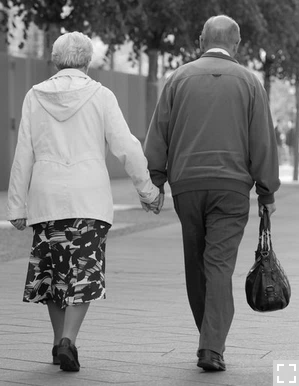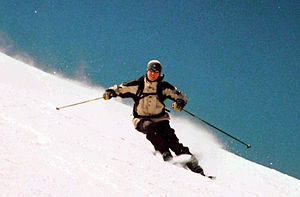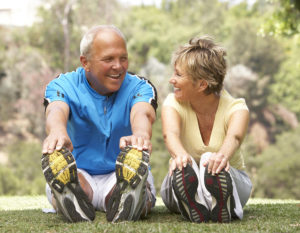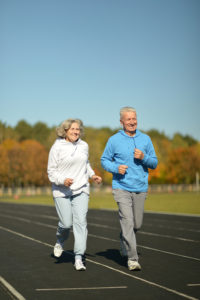I don’t know about you, but I am so very tired of the word senior and the negative connotations that have been associated with that word for years. From the geniuses who write dictionaries and thesauruses to lowbrow comedians, movie producers and to the media in general, negative stereotypes have become a disgrace, and to me an outrage.
In fact, I’m mad as hell and I’m not going to take this anymore (with special thanks to Paddy Chayefsky for writing that powerful line for the film Network). Plus the term senior citizens is not treated with much respect or reverence either. There’re just so many tired gags age shaming us like, old fools, blue hairs, angry old men, incontinence, canes and walkers, doddering, tottering and wobbling. The list of ancient typecasts just keeps on growing―and the worst part about it is all too often we simply buy into this mindset and accept our fate.
The Third and Fourth Ages
Okay, maybe I’m a tad oversensitive about the word senior and just maybe I’d like to find an alternative description. In French and Spanish languages we are referred to as the Third Age and Fourth Age, and in our book, thinking along those lines instead of all the negative imagery can make all the difference in the world in attitude and self respect.
In enlightened countries, life is split into to four eras or ages. I find it curious how many countries and other societies respect Third and Fourth Age adults. For example, in Fiji, family and friends care for them at home until their dying days. In America, the elderly are typically sent to nursing homes―some before their time. In America, the “cult of youth” and emphasis on the virtues of independence, individualism and self-reliance also make life hard on older people as they inevitably lose some of these traits―but have we really lost these traits or have we given in to negative expectations?
So let’s have a look at the terminology that better defines our progressive years.
In the First Age we are preparing, learning and growing; we are beginning our lives and developing our minds, muscles and endurance. We have much to learn and little to contribute, but we are cherished and prized as the promised generation.
In the Second Age we begin to pay back our parents and teachers with productivity while we propagate our species. We are now adults and have become the backbone of society. Interestingly, one hundred years ago we would die following our child-bearing years, and it was infrequent to encounter a member of the Third Age.
In the Third Age, from approximately 50 to 75, we should be revered for our wisdom, our innate ability to have survived First and Second Ages, and our stamina and experience. Third Age should not be viewed as a time of decline, but one of renewal.
Unfortunately, many of the words associated with being over 50, such as retired and senior are oversimplifications of a rich, but complex reality that is often viewed as barriers to change. The often held beliefs that the Third Age is either a time spent in unrelenting leisure or rocking aimlessly on the front porch are equally inaccurate and pejorative.
The Fourth Age: For over 75s this is the Age of Completion. This last stage of life on Earth allows us to prepare fully for whatever we believe comes next for the aging elderly. Growing to our full potential in Third Age allows us enter fully into this completion. I, for one from a purely chronological standpoint, fit perfectly into this quadrant―and as you might imagine, I am revolted by its definition. While it may well be my last stage of life, I intend to live it fully, actively and healthy until the end.
Cultural Influences on Attitudes Toward Aging
 I have to laugh every time I see an ad on TV for senior medications or products. Do journalists and marketing people really think so poorly of seniors? If they do, how do they expect to sell their products? Who wants to identify with a demographic audience that looks like some of the images we see of frail seniors, hunched over walkers and canes?
I have to laugh every time I see an ad on TV for senior medications or products. Do journalists and marketing people really think so poorly of seniors? If they do, how do they expect to sell their products? Who wants to identify with a demographic audience that looks like some of the images we see of frail seniors, hunched over walkers and canes?
Even NPR (National Public Radio), usually a progressive media outlet, uses this photo image to accompany its article, “Aerobic Exercise May Improve Memory in Seniors,” published in February 2011 (see box).
Seriously? This is how NPR sees seniors today, dressed up for an aerobic walk? I’m sorry, but it’s offensive, not to mention silly.
Worse, as seniors we risk unconsciously associating with an outdated image of what seniors are supposed to act and behave like.
These internal attitudes are pervasive and pernicious. Just look at the research on implicit biases, how even people of color end up with unconscious biases against people of color.
Don’t Buy Into Stereotypes of Seniors
As seniors who take responsibility for our health, we cannot afford to adopt outdated views or expectations for how we are going to act as we grow older. We need to start seeing ourselves as exceptional people who are doing whatever it takes to grow older in ways not expected for our parents and grandparents.
Stay alive by showing up and being ready for action. Get your hiking boots or gym shoes on.
If any of us are going to join the senior fitness revolution, we need to take a serious look at our own attitudes and expectations for aging. Here’s an example: in describing someone, do you ever say “old fart”? Except as a sarcastic term of endearment for your partner or spouse, this is never funny.
My point is that these worn-out stereotypes won’t change until we face them. We mustn’t buy into to them and we have to transform these old perceptions into one of strength, vitality, confidence and pride. Quit telling people that you’re old. Quit walking, talking and thinking like old people. You are in your fabulous Third Age and you should be revered for that achievement.
Alternatively…
There are hundreds, maybe thousands of examples, case studies and photos I can draw upon to demonstrate why the prevailing slapdash images and archetypes of Third and Fourth Age adults are completely bogus. With a little dedication and a lot of work we can all look and perform like these healthy Third and Fourth Agers.
Ponder some of these real examples of aging well:

Senior Skier Carving a Turn

Senior Couple Exercising and Stretching In Park

Active senior couple together enjoying romantic walk with bicycle in golden autumn park

Happy active fit senior couple exercising outdoor

A very special tip of the cap to Mary Russell, of Paris and Miami Beach fame, for lighting this flame under me. Thanks Mary 🙂